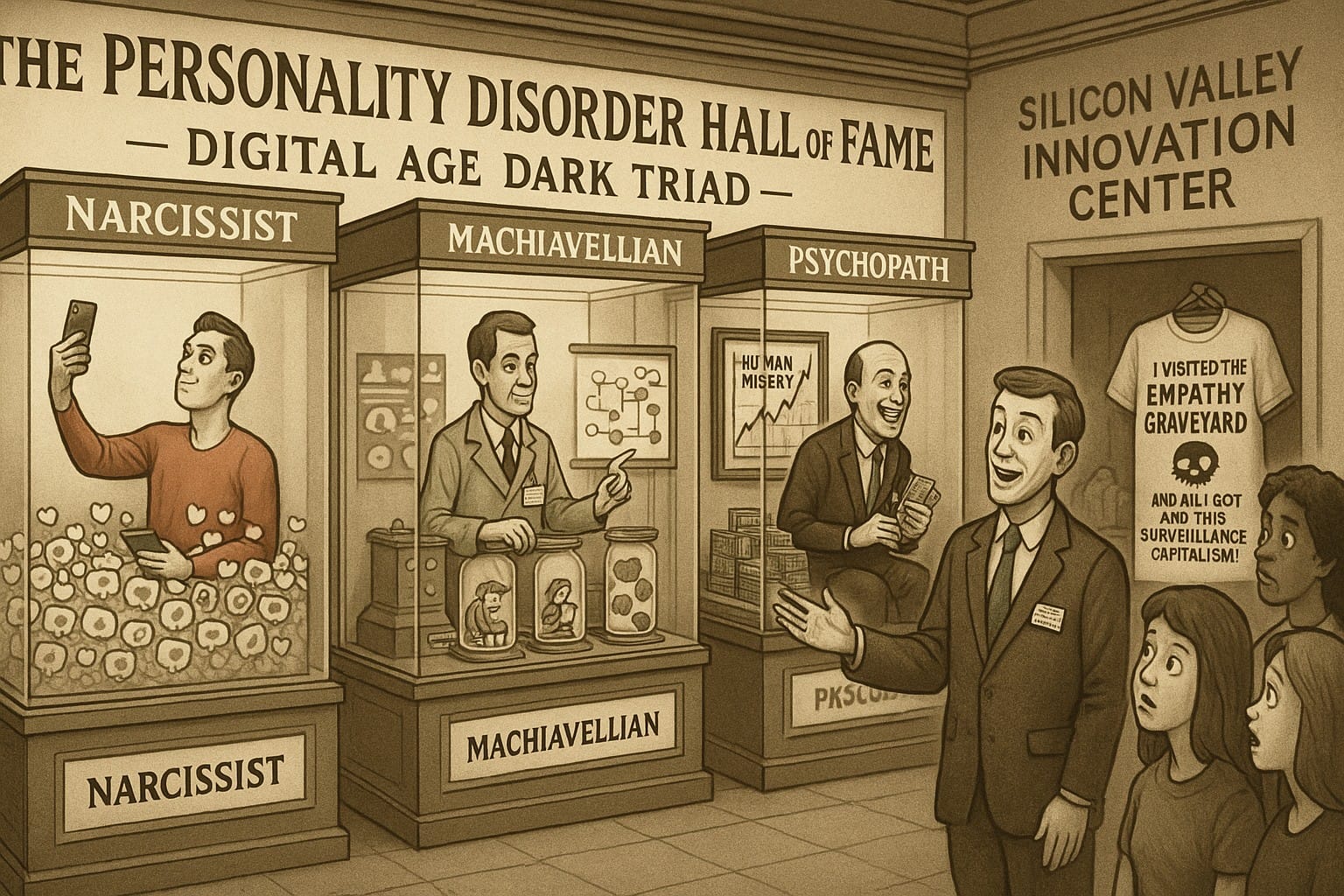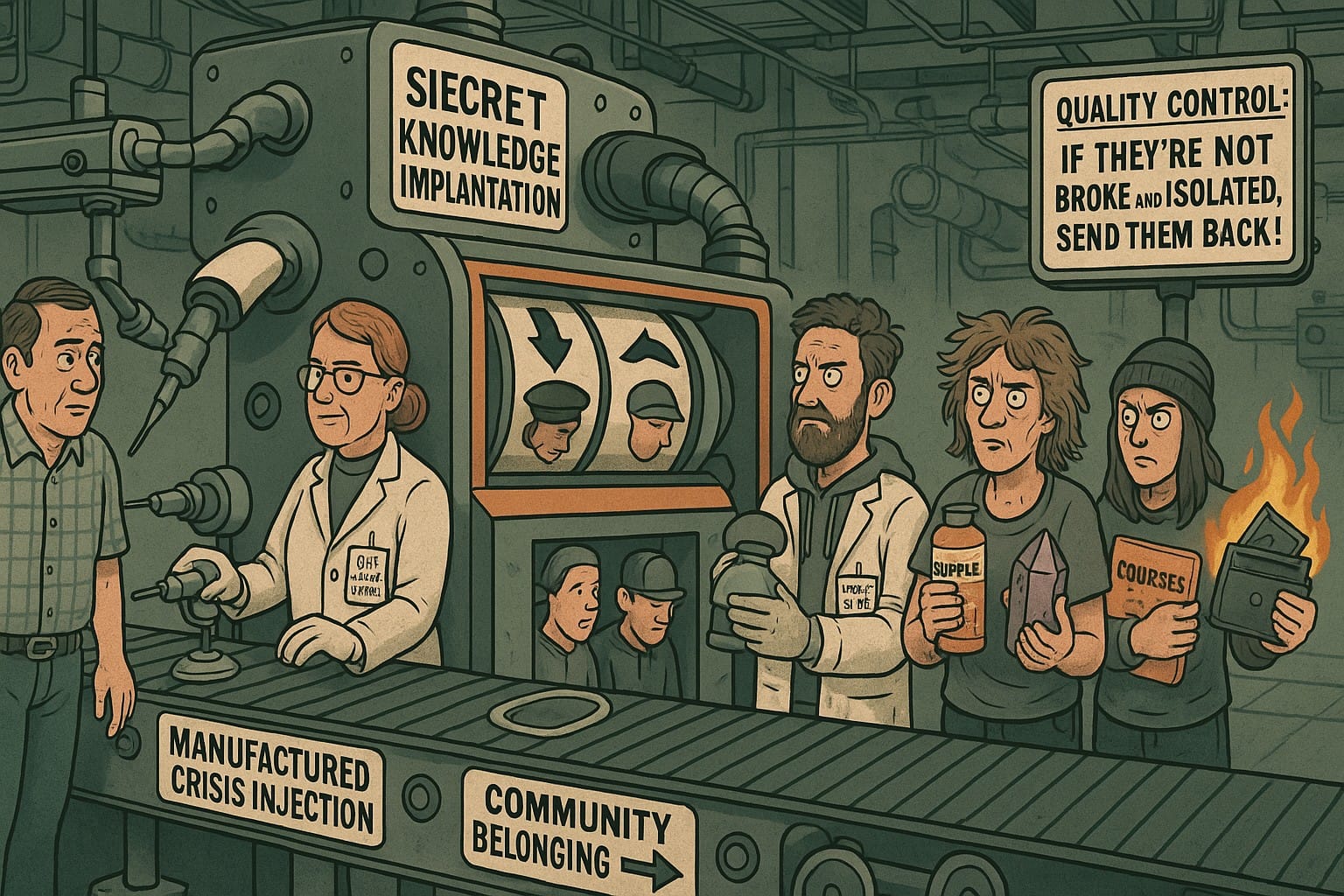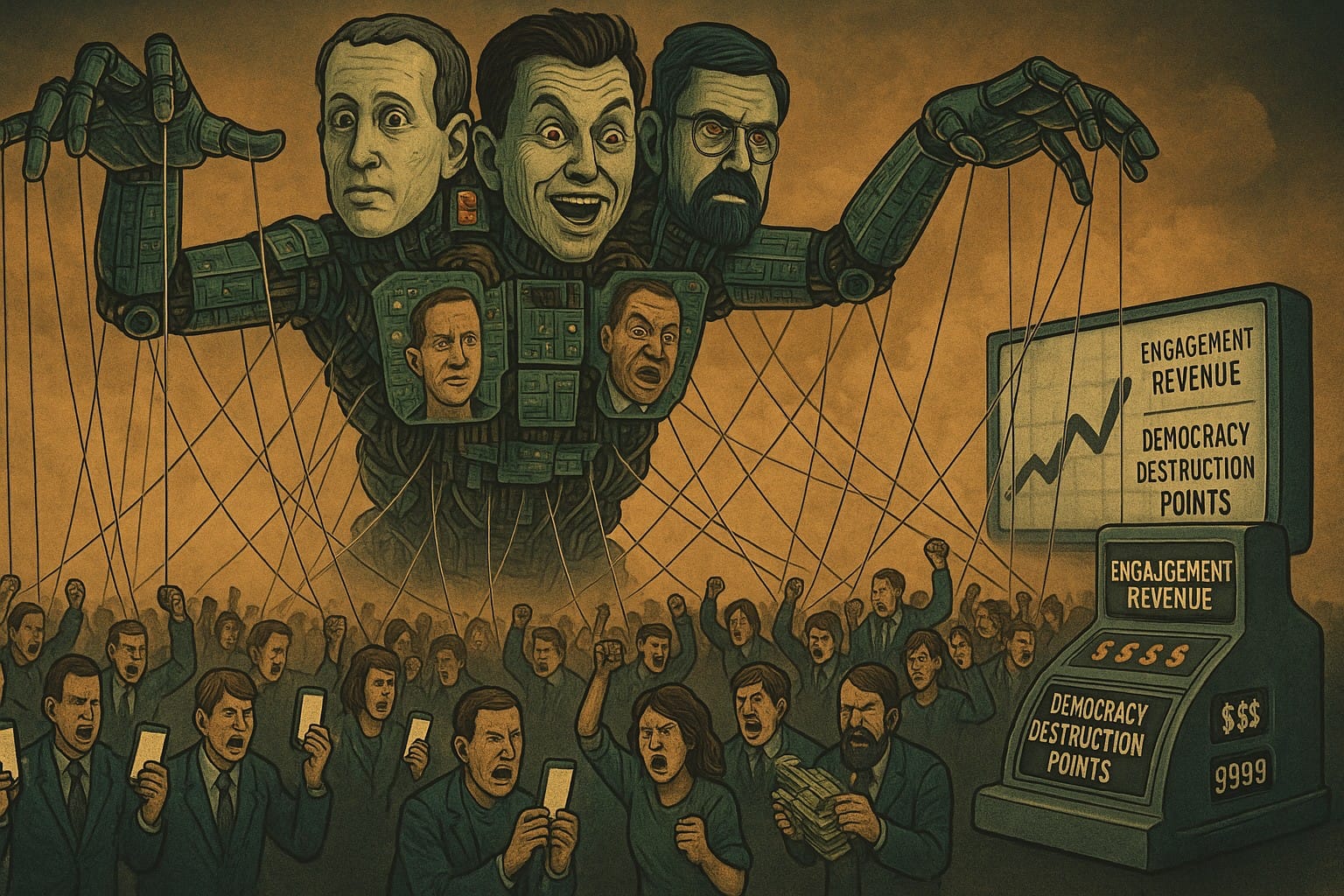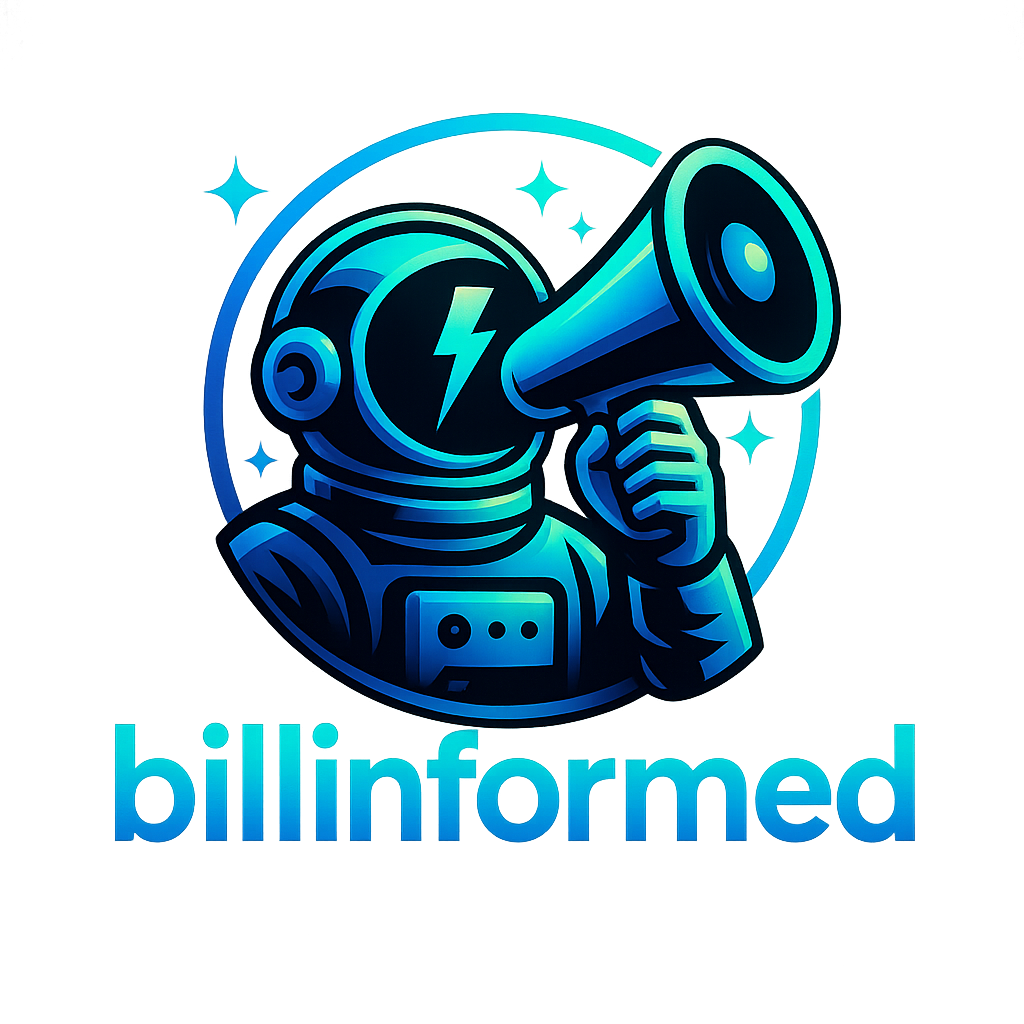How Silicon Valley Weaponized Your Brain
Somewhere between the invention of the "like" button and your uncle posting QAnon memes at 3 AM, the internet stopped being a tool and became a psychological weapon of mass destruction. We're now living in a world where your neighbor gets investment advice from a 19-year-old TikToker whose main qualification is owning crypto and a ring light, while your aunt shares "research" from someone called "PlandemicProofs4" who thinks vegetables are a government conspiracy.
This isn't a bug in the system. This is the system working exactly as designed—just not for anyone with a functioning prefrontal cortex.
Meet Your Digital Overlords: The Personality Disorder Hall of Fame

Let's talk about the Dark Triad: narcissism, Machiavellianism, and psychopathy.
These delightful personality cocktails have always existed, lurking in middle management and family holiday dinners. They're the people who make every conversation about their CrossFit journey, who compliment your haircut while stealing your lunch from the office fridge, who sleep like babies after ruining someone's credit score.
The difference now? The internet handed these human Molotov cocktails a global megaphone and a revenue stream.
Digital platforms basically gave narcissists what they've always craved: a validation machine that never stops dispensing dopamine hits. Likes, shares, followers, heart-eye emojis—their psychological need for constant worship became a mobile game they play while taking a dump.
Machiavellians hit the mega-jackpot. They now A/B test their manipulation on millions of people simultaneously, like having a focus group made of every gullible person on earth. They identify exactly which combination of fear, hope, and manufactured outrage makes you click "buy now" faster than a suburban dad buying tactical flashlights after binge-watching prepper YouTube while his family sleeps upstairs.
And psychopaths? Oh, they’re in paradise. Digital distance erases any need to see the human wreckage they create. They destroy someone's life, and it’s just engagement metrics on a dashboard, like playing Grand Theft Auto, except the NPCs have real bank accounts and actual families.
When Silicon Valley Chose Violence (Against Your Sanity)
Here's the thing that'll make you want to throw your phone into the ocean: tech companies didn't accidentally create systems that reward manipulation. They engineered them with the precision of a Swiss watchmaker who majored in human misery.
Social media algorithms optimize for "engagement," which translates to "making people so emotionally activated they scroll compulsively while their marriages dissolve and their houseplants die of neglect."
Content that makes you pause and think? Absolute poison for quarterly earnings. Content that makes you feel superior to your high school classmates or convinces you that lizard people run the Federal Reserve? That's algorithmic cocaine.
A friend who works in content creation—and by "works," I mean "sells their soul daily to the engagement demon"—confirmed what anyone with two brain cells already suspected: the most successful posts aren't the ones that help people or share useful information. They're the digital equivalent of someone screaming "FIRE!" in a crowded theatre, except the theatre is your entire life and the fire is whatever manufactured crisis keeps you clicking.
It's "if it bleeds, it leads" for the smartphone age, except now instead of one news director making editorial decisions, algorithms run this psychological warfare calculation millions of times per second across every piece of content on every platform, like HAL 9000 redesigning your brain chemistry for profit.
The result was as predictable as a Marvel movie plot: the platforms created massive evolutionary pressure for exactly the personality types best at making people feel terrible in ways that generate revenue.

The Wellness Grift Industrial Complex
The wellness industry didn't just perfect turning anxiety into addiction—they built a psychological weapons factory disguised as a yoga studio.
These aren't just people hawking overpriced supplements that smell like sadness and taste like crushed dreams. They're running sophisticated psyops that would make the CIA jealous.
The playbook is so elegant it's almost beautiful in its sociopathy.
First, create awareness of problems people didn't know they had: "toxic buildup" (spoiler: that's just called "being alive"), "adrenal fatigue" (translation: "you're tired like every other human"), "electromagnetic sensitivity" (aka "I need an excuse for why my life sucks that doesn't involve personal responsibility").
These problems sound medical enough to trigger your health anxiety, but they stay vague enough that you can’t prove you don't have them. It's like being told you might have "spiritual diabetes" or "energetic gluten intolerance."
Next, position yourself as the brave truth-teller fighting against Big Pharma, Big Tech, or Big Whatever-the-Fuck.
What a shocking coincidence that the person diagnosing the conspiracy also sells the only cure, available now for three easy payments of $99.99 plus shipping and your dignity.
Finally, build a community around this shared secret knowledge.
Customers aren’t just buying products; they are joining the resistance against the lizard overlords. They become the enlightened ones who see through the lies that keep everyone else trapped in the matrix of mainstream medicine and basic scientific literacy.
The psychology is bulletproof.
The worse the invented problem, the more grateful people become for the solution. The more ridiculous the conspiracy, the more special adherents feel for believing it. People sprint from "yoga helps my back pain" to "5G towers steal our life force and only this $200 crystal saves me" faster than you can say, "correlation doesn't imply causation."
How Pathological Behaviour Became "Disruption"
These digital psychopaths haven't just gamed the system—they've convinced an entire generation that their pathological traits are really entrepreneurial superpowers. Narcissistic grandiosity became "visionary thinking." Machiavellian manipulation became "disruption." Psychopathic ruthlessness became "making tough decisions for humanity's future."
Take Elon Musk, who spent $44 billion to turn Twitter into a Nazi bar, then positioned himself as a free speech warrior fighting for the little guy. The man posts nothing without framing himself as humanity's personal Jesus, whether he's promising to solve climate change, colonize Mars, or prevent World War III by posting memes at 3 AM while high on ketamine.
When he has his public meltdowns, like calling rescue workers pedophiles because they didn't use his submarine idea, ranting about imaginary enemies while his stock price craters, his followers don't see a billionaire having emotional breakdowns that would get us committed. They see a misunderstood genius fighting the establishment, like Neo from The Matrix, if Neo grew up really into apartheid, emerald money and union-busting.
Then there's Mark Zuckerberg, who built a machine specifically designed to destroy teenage girls' mental health, as he sits in front of Congress explaining how it's all about "bringing the world closer together" with the dead-eyed stare of a serial killer describing his stamp collection.
His own company's internal research (leaked by whistleblowers who still retained functioning consciences) documented in excruciating detail how Instagram drove unprecedented rates of body dysmorphia, self-harm, and suicidal ideation among adolescent girls. Their response wasn't to fix the problem. They buried the research with Jimmy Hoffa and kept optimizing for engagement.
We're watching an entire generation of girls learn that their worth gets measured in likes and comments, constantly comparing themselves to images that teams of professional photographers and Photoshop wizards have filtered, edited, and curated to impossible standards.
The suicide rates, eating disorders, and depression among teen girls have skyrocketed in direct correlation with social media adoption, like a real-time experiment in psychological warfare against children.
But Zuckerberg stares with that reptilian non-expression and explains how it's all about human connection, like Charles Manson describing how the murders were really about bringing people together.
The Grift Economy: Where Desperation Meets Exploitation
Every guru, influencer, and conspiracy theorist is running the same business model: monetize human vulnerability at scale.
Alex Jones spent decades telling people the government poisoned them, then sold them supplements that supposedly counteracted the poisoning. This is like burning down someone's house and then selling them fire insurance. The man turned mass shootings into marketing opportunities and then convinced his followers he was the victim.
Crypto influencers explain how the traditional banking system corrupts everything and keeps you poor, while hawking courses on "financial freedom" for $497. Their main qualification involves
“owning” a Lamborghini and understanding Ponzi schemes, but they've convinced millions that they're the next Warren Buffett.
Andrew Tate built an empire teaching incels that women are property while running a cam girl operation that would make a mob boss blush. He's currently sitting in Romanian prison on human trafficking charges, but his followers still believe he's being persecuted by "the matrix"—because nothing says "innocent victim" like fleeing to Romania specifically to avoid rape charges.
Jordan Peterson tells young men that cleaning their rooms will prevent Western civilization's collapse, conveniently omitting that his beef-only diet phase coincided with a serious benzodiazepine addiction. This man nearly died from munch pills and wants to lecture people about personal responsibility.
Sam Bankman-Fried stole $8 billion while living in a polyamorous drug compound, lecturing everyone about "effective altruism." The more obviously unhinged his lifestyle became, the dirty sleeping bags, the stimulant-fueled all-nighters, the general appearance of someone who had been raised by feral economists, the more people trusted him with their money.
The pattern repeats endlessly: manufacture crisis, position yourself as the solution, build a cult around the mythology, profit from the desperation, repeat until indicted or committed.
When Truth is Just Another Content Category
The platforms flattened all sources of information into "content," like putting Shakespeare and your drunk uncle's Facebook rants in the same literary category.
A peer-reviewed climate study gets the same visual treatment as a blog post claiming seed oils orchestrate a communist plot to feminize American men. When everything looks equally credible, nothing is.
People trust their favourite YouTuber's supplement recommendations more than medical journals because the YouTuber talks to them every week for years, sharing personal struggles and daily protein shake recipes. The parasocial relationship feels more real than institutional authority. “Sure, he’s selling snake oil, but I like him.”
Meanwhile, traditional news feels like watching robots read scripts written by other robots who learned journalism from a committee of sociopaths. The human brain wasn't designed to trust institutional performance over personal connection, even when that connection runs entirely one-way and the person on the other end would sell your grandmother's kidney for engagement metrics.
When people encounter information now, they don't ask "Is this true?" They ask, "Does this feel true? Does the person sharing it seem trustworthy? Does it confirm what I already suspect about the world being run by a secret cabal of interdimensional pedophiles?"
Traditional gatekeepers, journalists, editors, fact-checkers, and people with actual qualifications got replaced by algorithms whose only job involves keeping eyeballs glued to screens. The old system had flaws, biases, and blind spots. But at least there were people whose careers depended on getting things right more often than not.
Now, any random blog (even this one) post looks exactly like legitimate journalism, and the most confident voice wins regardless of expertise. Medical advice comes from podcasters whose qualifications are owning a microphone and having your attention.

The Manipulation Playbook
The most effective psychological manipulation happens when people get emotionally activated, angry, scared, or desperately hopeful.
Content designed to trigger these states doesn't feel like manipulation; it feels urgent and important, like receiving a text that your house is on fire, except the fire is whatever manufactured crisis will sell the most supplements.
When someone positions themselves as the only person brave enough to tell you the truth that "everyone else" hides, they're not sharing secret knowledge; they're running a con so obvious it would make a carny cringe. Real information rarely comes with a persecution complex and a shopping cart full of miracle cures.
The targets aren't stupid or gullible.
They're human with everyday psychological needs for belonging, understanding, and purpose. They’re just caught in a psychological honey trap designed by people with the moral compass of a crack dealer.
People don't want to believe conspiracy theories.
They want to feel special, informed, and part of something meaningful in a world that increasingly feels like psychopaths run it (spoiler alert: they do, just not the fun illuminati kind).
The conspiracies deliver those feelings, like how crack dealers don't care about the crack, they care about the money that comes from making people feel temporarily better about their terrible circumstances.
The Systemic Problem: You Can't Recycling-Your-Way Out of Climate Change
Individual media literacy won't solve this any more than individual recycling will solve climate change.
Even if everyone became perfectly sophisticated about these manipulation tactics tomorrow, which we won't, because we stay busy and tired and only want to watch funny videos of cats, we’d still be swimming against platforms that have billion-dollar budgets and zero moral constraints whatsoever.
The fundamental problem isn't that people fall for scams. It's that the entire economic model of the internet rewards scamming with the efficiency of a slot machine designed by behavioural psychologists that hate humanity.
The platforms make money when people stay angry, divided, and constantly engaged, so that's precisely the content they promote. Trying to solve this through personal responsibility is like trying to address a gunshot wound with positive thinking and essential oils.
The scale of the problem requires systemic solutions: algorithmic transparency, platform accountability, and economic models that don't treat human psychological vulnerability as a natural resource to be strip-mined by sociopaths in hoodies.
How it Ends (Spoiler: Not Well)
The tech companies conduct the largest psychological experiments in human history. The subjects of this experiment—all of us—didn't consent to participate, don't understand the variables being tested, and won't opt out without significant social and economic costs, like trying to quit capitalism by moving to the woods, except the woods now have WIFI and targeted advertising.
The people running these experiments aren't evil geniuses. They're mostly just competent at exploiting human psychology for profit, like drug dealers with Stanford MBAs and better PR teams.
They've convinced society that their success represents human progress when it actually represents regression to a feudal system where digital lords extract value from psychological serfs.
They've turned our phones into Skinner boxes, our news into emotional manipulation, and our politics into entertainment where the goal isn't governance but audience engagement and advertiser revenue.
The most successful con artists in history didn't just steal money; they made their victims grateful for the experience and eager to recruit friends and family. That's what's happening here, except instead of targeting individuals, they're running the con on civilization itself, like if Bernie Madoff had targeted the concept of truth instead of just rich people's retirement funds.
What's terrifying isn't only that people get scammed. It's that the scammers have convinced them that being scammed is enlightenment, and that anyone who points out the scam is just jealous of their success or working for the deep state lizard cabal.
The first step to solving this is recognizing that platforms built these problems deliberately, with the careful planning of architects designing a psychological prison.
The second step stops the reward systems that give the worst actors our attention, money, and trust.
People need to start by asking a straightforward question: Who benefits when they stay angry, afraid, and isolated from each other?
Because the personalities promising to save us from the chaos are the ones who profit most from keeping us trapped, like pharmaceutical executives who create opioid epidemics then pivot to selling addiction recovery programs.
This isn't an inevitable technological evolution we need to accept, like death and taxes and Marvel movie sequels. These are choices being made by specific people who will choose differently, but won't because the current system makes them obscenely wealthy and powerful.
The question isn't whether we solve this.
The question is whether we're willing to admit that it needs fixing before there's nothing left of human connection that hasn't been monetized, gamified, or algorithmically optimized for someone else's profit margins.
Because right now, we're living in a world where Mark Zuckerberg gets to destroy democracy for ad revenue while calling it innovation, and somehow we're supposed to be grateful for the privilege.


